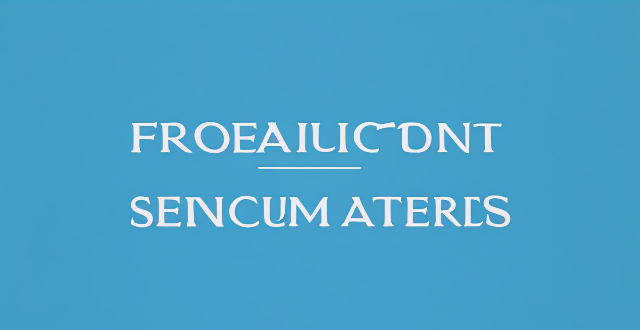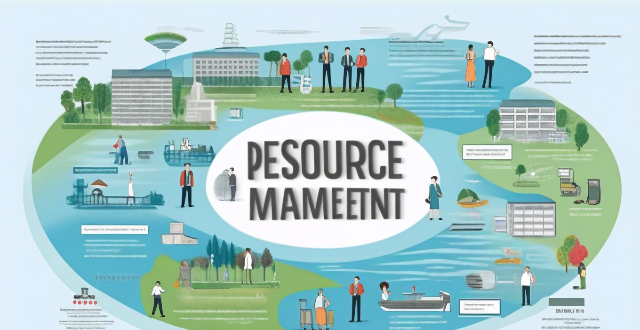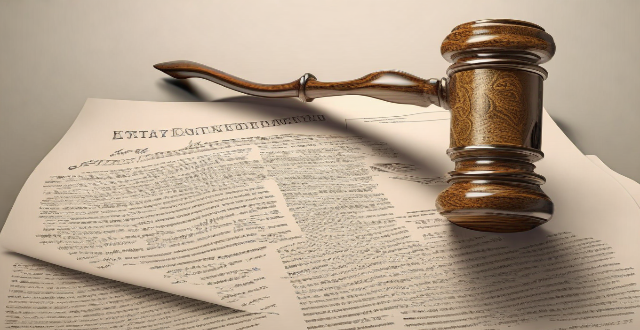Employer Legal

What are the legal requirements for providing PPE to employees ?
Personal Protective Equipment (PPE) is essential in ensuring the safety and health of employees in various industries. Employers have a legal obligation to provide their employees with appropriate PPE, which must comply with specific regulations and standards set by organizations such as OSHA, the EU, Safe Work Australia, and CSA. Employers must conduct a hazard assessment, select appropriate PPE, ensure proper fit and comfort, provide training and education, and establish a system for maintaining and replacing PPE. By fulfilling these legal requirements, employers can help protect their employees from workplace hazards and promote a safe working environment.

What are the legal implications of using smart contracts ?
Smart contracts, self-executing contracts with terms written in code on a blockchain, raise legal questions about enforceability, jurisdiction, privacy, security, and regulatory compliance. Best practices include consulting a legal expert, clearly defining terms, considering jurisdiction, and prioritizing privacy and security.

How do women entrepreneurs navigate the legal aspects of starting a business ?
Starting a business as a female entrepreneur involves navigating various legal considerations. This guide offers strategies for handling these aspects, including understanding legal frameworks, protecting intellectual property through trademarks and copyrights, drafting contracts, complying with employment laws, ensuring financial compliance, and managing risks with insurance. By addressing these components systematically, women entrepreneurs can establish a solid foundation for their businesses while minimizing legal risks and ensuring smooth operations.

What are the legal aspects to consider in credit management ?
Credit management involves various legal considerations, including contract law, consumer protection laws, privacy laws, bankruptcy laws, state and federal laws, and collections practices. Businesses must ensure that their contracts are legally binding, disclose all relevant information about their credit products, protect customer data, understand bankruptcy laws, comply with usury laws and licensing requirements, and adhere to the Fair Debt Collection Practices Act. By considering these legal factors, businesses can maintain strong relationships with their customers while minimizing financial risks.

What legal resources are available for women who face discrimination or abuse ?
This text provides a summary of legal resources available to women who are facing discrimination or abuse. It outlines various government agencies that enforce laws related to gender-based discrimination and violence, non-governmental organizations that offer support and information, legal aid organizations that provide free or low-cost legal services, and online resources that offer legal information and self-help guides. The text emphasizes the importance of seeking help from these sources if one is experiencing any form of mistreatment or inequality based on their gender.

Can women serve on juries and hold positions of power within the legal system ?
The role of women in the legal system has evolved significantly over time. Women are now allowed and encouraged to serve on juries, bringing diversity of perspectives, increased trustworthiness, and improved decision-making. However, women still face challenges in achieving parity with men in holding positions of power within the legal system. Efforts such as affirmative action programs, mentorship programs, and flexible work arrangements have been implemented to address these issues.

How does the European Union approach climate change through its legal frameworks ?
The European Union has been at the forefront of addressing climate change through its legal frameworks. It has adopted a comprehensive and integrated approach that includes legislation, regulations, directives, and other legal instruments to mitigate greenhouse gas emissions and adapt to the impacts of climate change. This approach is based on the principles of sustainable development, prevention, polluter pays, and subsidiarity. Some key legal frameworks for climate change in the EU include the European Climate Change Programme, Emissions Trading System, Renewable Energy Directive, Energy Efficiency Directive, and Climate Action and Resilience Package. The implementation and enforcement of these legal frameworks are ensured through monitoring and reporting, evaluation and review, and enforcement actions. Despite facing challenges such as political will, technological innovation, and international cooperation, there are also opportunities for the EU to further strengthen its approach to climate change through legal frameworks by exploring innovative financing mechanisms, collaborative governance, and global leadership.

Are there any legal requirements for installing a burglar alarm system ?
Legal Requirements for Installing a Burglar Alarm System Security is an essential aspect of modern life, and installing a burglar alarm system can significantly enhance the safety of homes and businesses. However, there are legal requirements that must be met before installing such systems. This article discusses the legal requirements for installing a burglar alarm system, including obtaining permits and licenses, checking insurance requirements, and adhering to local regulations and ordinances. By complying with these requirements, you can ensure that your burglar alarm system provides effective security while meeting all legal obligations.

Are there any legal requirements for installing a home security system ?
Home security systems are becoming increasingly popular as homeowners seek to protect their property and loved ones from potential threats. However, before installing a home security system, it is important to understand the legal requirements that may apply in your area. In this article, we will explore some of the key legal considerations when installing a home security system. Local ordinances and regulations, privacy laws, insurance requirements, and maintenance and upkeep are all important factors to consider when installing a home security system. By understanding these legal considerations, you can make informed decisions about protecting your property and loved ones while staying within the bounds of the law.

What are the legal frameworks and policies supporting the establishment of ecological protection areas ?
The establishment of ecological protection areas is supported by various legal frameworks and policies that aim to conserve biodiversity, protect ecosystems, and promote sustainable development. These frameworks and policies are essential for ensuring the effective management and protection of ecological protection areas. Some key legal frameworks and policies supporting the establishment of ecological protection areas include international legal frameworks such as the Convention on Biological Diversity (CBD) and the United Nations Convention to Combat Desertification (UNCCD), national legal frameworks such as National Biodiversity Strategies and Action Plans (NBSAPs) and national environmental policies, regional legal frameworks such as regional conservation agreements, and sector-specific legal frameworks such as forestry laws and regulations and wildlife conservation laws and regulations. When establishing ecological protection areas, it is essential to follow best practices such as conducting thorough scientific research, engaging local communities in the planning and management process, developing clear management plans, monitoring ecological protection areas regularly, and promoting sustainable tourism activities within them.

Can you explain the Occupational Safety and Health Administration (OSHA) safety regulations ?
The text provides an introduction to OSHA safety regulations, which are enforced by the United States' federal agency, Occupational Safety and Health Administration. The goal of these regulations is to ensure safe and healthy working conditions for employees. The text covers several topics including: 1) General Duty Clause, which requires employers to provide a workplace free from recognized hazards; 2) Specific Standards, which cover various topics such as electrical wiring and equipment, hazardous chemicals and substances, and fire prevention and protection; 3) Recordkeeping, which requires employers to maintain accurate records of work-related injuries and illnesses; 4) Inspections, which are conducted by OSHA compliance officers to ensure compliance with safety regulations; and 5) Training and Education, which are provided by OSHA to help employers and employees understand their rights and responsibilities under safety regulations. The text concludes that OSHA safety regulations are essential for ensuring employee health and safety in the workplace, and employers must comply with these regulations to avoid legal consequences and create a safe working environment for their workers.

What are the legal implications of failing to meet climate targets set by international agreements ?
Failing to meet climate targets set by international agreements can have significant legal implications, including liability for damages caused by climate change, violation of international law, and domestic legal consequences. These implications can vary depending on the specific agreement and jurisdiction in question, but some common consequences include public and private claims for damages, trade sanctions, loss of funding or aid, international dispute resolution, regulatory compliance, shareholder pressure, and reputational risk.

What legal considerations should fans be aware of when planning a support event for an artist ?
When organizing a support event for an artist, fansWhen organizing a support event for an artist, fans avoid infringement of fans must consider legal aspects to avoid infringement of rights and unintended issues. Key considerations include intellectual property rights such as music copyright and trademarks; public performance licenses; venue agreements; necessary permits and regulations; privacy and consent; liability and insurance; transparent promotion and marketing; and clear ticketing policies. Consulting with legal professionals is recommended to ensure all aspects are legally sound.

What are the legal and policy frameworks for water resource management at the national and international levels ?
Water resource management is a critical issue that affects the sustainability of ecosystems, the economy, and human well-being. To address this challenge, various legal and policy frameworks have been established at both national and international levels. At the national level, water resource management is governed by a combination of laws, regulations, and policies aimed at ensuring equitable access to water resources, protecting the environment, and promoting sustainable development. International legal and policy frameworks play a crucial role in addressing transboundary water issues and promoting global cooperation on water resource management. Effective water resource management requires a comprehensive approach that encompasses both national and international legal and policy frameworks.

Can I make changes to my estate plan without a lawyer ?
Making changes to an estate plan without a lawyer is possible but risky, as it can invalidate the plan or lead to unintended consequences. Simple updates like changing a beneficiary or using online will services might be manageable without legal help. However, understanding legal requirements, document formalities, and potential risks are crucial. Periodic reviews and seeking professional advice for complex situations or peace of mind are recommended.

Is cryptocurrency legal in all countries ?
The legality of cryptocurrency varies across countries, withThe legality of cryptocurrency varies across countries, with it and others banning or The United States, Japan, and El Salvador are examples of countries where cryptocurrency is legal and regulated. In contrast, Algeria, Egypt, and Nepal have outright banned it due to concerns over financial stability and potential misuse in illegal activities. China, India, and Russia have imposed restrictions on its use but have not completely prohibited it. It is crucial to understand local laws and regulations before engaging in any cryptocurrency-related activities.

What are the legal requirements for data privacy ?
Data privacy is a fundamental right that ensures the protection of personal information from unauthorized access, use, or disclosure. The legal requirements for data privacy vary by country and jurisdiction, but there are some general principles that most countries follow, such as consent, limited purpose, transparency, security, onward transfer, and rights of the individual. Examples of legal requirements in different countries include the Federal Trade Commission Act, Gramm-Leach-Bliley Act, Health Insurance Portability and Accountability Act in the United States; the General Data Protection Regulation in the European Union; and the Personal Information Protection and Electronic Documents Act and Personal Health Information Protection Act in Canada.

What are the legal requirements for workplace safety ?
Legal requirements for workplace safety include compliance with occupational health and safety laws, implementation of a health and safety management system, provision of personal protective equipment (PPE), reporting of injuries and illnesses, and employee participation in health and safety decisions. These measures ensure the well-being of employees and protect the company from potential legal liabilities.

What is the importance of personal protective equipment (PPE) in the workplace ?
The Importance of Personal Protective Equipment (PPE) in the Workplace Personal protective equipment (PPE) is essential in the workplace to ensure the safety and health of employees. PPE includes items such as gloves, goggles, masks, hearing protection, and more. Here are some reasons why PPE is important: - Protection from Hazards: PPE protects workers from various hazards that may be present in their work environment, such as chemicals, biological agents, radiological materials, physical hazards, and mechanical hazards. - Compliance with Regulations: Employers are required by law to provide a safe and healthy working environment for their employees, which includes providing appropriate PPE when necessary. - Reduced Workplace Accidents: PPE can help prevent accidents in the workplace by protecting workers from harm, such as cuts, burns, and eye injuries. - Improved Employee Morale: Providing PPE shows employees that their employer values their safety and wants them to return home safely at the end of each workday, which can lead to improved morale and job satisfaction.

What are the legal implications of managing digital identities ?
Managing digital identities raises various legal implications including privacy laws, intellectual property rights, liability for misuse or breach, and compliance with industry standards. To ensure compliance, organizations must implement technical and organizational measures to safeguard personal information, obtain necessary permissions for proprietary information, mitigate liability risks through robust security policies, and adhere to identity management best practices.

How does work-life balance affect women's career growth and development ?
Work-life balance is crucial for women's career growth, reducing stress and increasing job satisfaction. Women face challenges achieving this balance due to societal expectations and lack of employer support. Strategies for achieving work-life balance include prioritizing self-care, seeking support from employers and coworkers, and building a strong support network.

How does the law address issues like sexual harassment and stalking against women ?
The article discusses the legal framework for addressing sexual harassment and stalking against women, including civil and criminal laws, employment law, and legal remedies available to victims. It emphasizes the importance of understanding one's rights and options under the law to hold perpetrators accountable and create a safer environment.

How can climate governance address the issue of climate refugees ?
Climate change is causing people to be displaced from their homes, leading to the emergence of "climate refugees." These individuals face challenges such as lack of legal recognition, inadequate response mechanisms, resource scarcity, social integration difficulties, and economic impacts. To address this issue, a comprehensive approach to climate governance is needed, which includes developing frameworks for international agreements and legal recognition, establishing funding mechanisms, building adaptation and resilience, managing migration, empowering communities, offering skill development, ensuring access to health services, coordinating policies, and continuously monitoring and evaluating policies.

What are the legal rights of women in the workplace ?
This text discusses the legal rights of women in the workplace. It outlines five key areas: equal pay, anti-discrimination, pregnancy leave, harassment and bullying, and parental leave. The text explains that women have the right to receive equal pay for equal work, be protected from discrimination in hiring, promotion, and termination, take pregnancy and parental leave without losing their job or facing negative consequences, and work in an environment free from sexual harassment, bullying, and other forms of gender-based misconduct. The text concludes by emphasizing the importance of these rights in ensuring that women can work in a safe and supportive environment where they are treated fairly and with respect.

Is it necessary for employers to provide fitness facilities or subsidize gym memberships ?
As the importance of physical health and wellness becomes increasingly recognized, many employees are looking for ways to maintain an active lifestyle. One option that has gained traction in recent years is for employers to provide fitness facilities or subsidize gym memberships as part of their employee benefits package. Providing fitness facilities or subsidizing gym memberships can help employees stay healthy and energized, which can lead to increased productivity at work. Studies have shown that regular exercise can reduce fatigue, improve mood, and enhance cognitive function, all of which can contribute to better job performance. Offering fitness perks can also be a powerful tool for attracting and retaining top talent. In today's competitive job market, companies need to offer unique benefits that set them apart from their competitors. By providing access to fitness facilities or subsidizing gym memberships, employers can demonstrate a commitment to their employees' well-being and create a positive work culture that fosters loyalty and engagement. While the initial investment in setting up a fitness facility or subsidizing gym memberships may be significant, there are potential long-term cost savings to consider. By promoting a healthy lifestyle among employees, employers may be able to reduce healthcare costs associated with chronic diseases related to poor diet and lack of exercise. Additionally, reducing absenteeism due to illness or injury can also save money in the long run. However, one of the main concerns about providing fitness facilities or subsidizing gym memberships is the cost. Depending on the size of the company and the scope of the program, implementing such benefits can be expensive. Employers must weigh the potential benefits against the financial implications before making any decisions. Another challenge is ensuring that the program is accessible and convenient for all employees. If the company is located in a remote area or has multiple locations, it may not be feasible to provide on-site fitness facilities or subsidize gym memberships at nearby clubs. Additionally, some employees may prefer working out at home or participating in outdoor activities rather than using a gym. Employers must also consider legal issues when implementing fitness programs. For example, they should ensure that any fitness facilities comply with local building codes and safety regulations. They should also be aware of potential liability issues if employees sustain injuries while participating in company-sponsored fitness activities. In conclusion, while it is not absolutely necessary for employers to provide fitness facilities or subsidize gym memberships, doing so can offer several benefits including increased productivity, improved retention and recruitment efforts, and potential cost savings over time. However, employers must carefully consider the financial implications, logistical challenges, and legal considerations before implementing such programs. Ultimately, whether or not to offer these benefits will depend on each individual company's unique circumstances and priorities.

What are the potential risks associated with sports sponsorship and how can they be mitigated ?
Sports sponsorship is a popular marketing strategy used by companies to promote their brand, products, or services. However, there are potential risks associated with sports sponsorship that need to be considered and mitigated. These risks include reputational risk, financial risk, and legal risk. To mitigate these risks, companies should conduct thorough research on the athlete/team before signing a sponsorship deal, ensure alignment between the sponsor's values and those of the sponsored entity, set clear budgets for sponsorship activities, monitor the performance of the sponsored entity, negotiate flexible contract terms, and work with legal experts to ensure compliance with all relevant laws and regulations. By managing these risks, companies can maximize the benefits of their sports sponsorship investments.

Can I use a VPN to protect my iPhone from cyber attacks ?
**VPNs: Enhancing iPhone Security and Navigating Legal Landscapes** In the digital age, where cyber threats are rampant, Virtual Private Networks (VPNs) emerge as a critical tool for securing internet activities. This essay delves into the role of VPNs in bolstering iPhone security by providing an additional layer of encryption, especially beneficial when using public Wi-Fi networks. It underscores the importance of selecting a VPN service that aligns with user needs in terms of security, speed, compatibility, and cost. Furthermore, it highlights the legal considerations surrounding VPN usage, emphasizing compliance with local laws and regulations. In essence, while VPNs offer significant benefits in shielding against digital threats, users must navigate their selection and use judiciously, considering both practical and legal implications.

Do I need a lawyer to create an estate plan ?
Estate planning is important for ensuring that your assets are distributed according to your wishes after you pass away. While it is possible to create an estate plan without a lawyer, working with a legal professional can provide numerous benefits such as legal expertise, customized plans, and peace of mind. However, if you have a simple estate with few assets and no complicated family dynamics, creating a basic estate plan using online tools or templates may be sufficient. It is still important to consult with a lawyer to ensure that your plan meets all legal requirements and addresses any potential issues.

What documents are typically included in an estate plan ?
An estate plan is a collection of legal documents that outline how an individual's assets and property will be distributed after their death. These documents can include various types of legal instruments, each serving a specific purpose in the estate planning process. Here are some of the most common documents included in an estate plan: - Last Will and Testament: A legal document that states how a person's property and assets will be distributed after their death. - Durable Power of Attorney: A legal document that grants authority to another individual (agent) to act on behalf of the principal in financial matters. - Healthcare Power of Attorney: A legal document that designates someone to make healthcare decisions on behalf of the principal if they are unable to do so. - Living Will: A document that provides instructions about your wishes for medical treatment and end-of-life care. - Trusts: A legal entity that holds and manages assets for the benefit of one or more individuals (beneficiaries). - Beneficiary Designations: The process of naming who receives the proceeds of a bank account, retirement account, or life insurance policy upon the account holder's death. - Letter of Intent: A non-legal document that provides additional information about personal wishes, sentimental items, and instructions for final arrangements.

What legal mechanisms exist to protect ecosystems affected by climate change ?
Legal mechanisms are in place at international, nationalLegal mechanisms are in place at international, national protect ecosystems affected by climate Endangered Species Act, Clean Air Act, European Union legislation, and various local laws and ordinances. These frameworks aim to reduce greenhouse gas emissions, conserve biodiversity, and promote sustainable practices to mitigate the impacts of climate change on ecosystems.